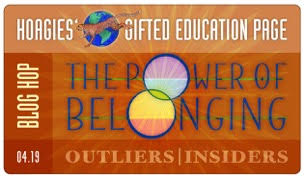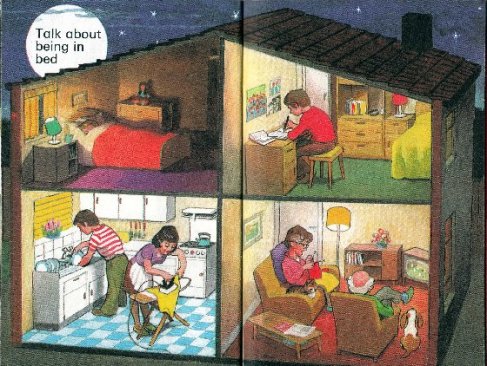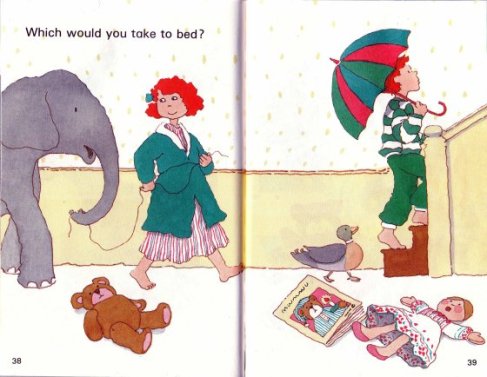“You know the very powerful and the very stupid have one thing in common. They don’t alter their views to fit the facts. They alter the facts to fit the views. Which can be uncomfortable if you happen to be one of the facts that needs altering.”
– The Doctor, Doctor Who, The Face of Evil.
I was a gifted child. ‘Officially’ speaking, I mean. Under the definitions that were in vogue when I was a kid, which were mostly based on IQ, I was well above the cut off point for giftedness and I think the ‘label’ was accurate in my case (though I certainly do not think any official definition of giftedness should be limited to IQ results, I remain convinced that it is one valid measure among many – I’ve no problem with the idea of making such an assessment in other ways as well, but this one should be included in the range of measures, or some kids who need the help that gifted children need will miss out on being identified, just as surely as if IQ is the only or primary measure used).
I wasn’t identified as gifted until I was twelve – even though, to be bluntly and frankly honest, I was clearly streets ahead of my age peers from the moment I started school in a whole range of academic and intellectual fields. I had taught myself to read before I started school (after my mother was told she should not teach me by an early childhood nurse because if she did, I would just be bored when I got to school) and was reading novels – albeit novels aimed at children – at the time when other kids were just reading the basic how to read books. I changed schools eight weeks into my first year of schooling (because my family had to move interstate when my father was reposted) and I remember my new teacher handing me the lowest level ‘reader’ to work out where I was up to, then handing me the next lowest, then the next lowest, and after that, handing me the highest level ‘reader’ she had and then sending out to the Grade Six class for their highest level ‘reader’ – and deciding after that, that I could read whatever I liked. I’m not exaggerating when I say that I had started school, having mastered all the English and Mathematics section of the entire primary school curriculum, and this was mostly self-taught. In seven years of primary school, I can remember learning only one new thing in mathematics – and that was only because I asked my Grade Four teacher a question, and he was good enough to take recess to answer it for me – we had been looking at perimeter and I asked him how somebody worked out the perimeter of a circle, and he took the time to introduce me to the concept of Pi. He also brought his own computer into the classroom (this was 1984 and computers in schools here were not yet a thing) and I learned the basics of BASIC programming from him. And from that I got the rudiments of algebra.
My intention in pointing the above out is simply to try and set the context for what I want to say next. The point is that I was clearly ‘advanced’. My parents had some idea of this, but they didn’t easily compare me to other kids. My teachers generally knew. And I certainly knew.
So why wasn’t I identified as gifted until I was 12?
Well, the answer to that is fairly simple – they didn’t do that where I went to school. At least not where I went to school from the age of seven.
Our state government at the time (in Australia, school level education is primarily the responsibility of state governments) had put education policy largely in the hands of a group that is sometimes referred to as the ‘Educational Left’. This was a group of self-described ‘Socialists’ who were part of the Australian Labor Party who held government in this state for most of my schooling. And they did not like the idea of gifted children. They regarded the idea of giftedness as anti-egalitarian and elitist. At this point, I find it necessary to mention that not everybody in the Labor Party shared that idea, nor do all Socialists – but this particular group did and they were the ones with the power and the influence. In particular, one of them, a Member of Parliament named Joan Kirner (who would become Minister for Education, and later the first (and so far only) female Premier of Victoria, but who was highly influential in setting state policy on education even before achieving those offices, regarded ‘gifted programs’ as a tool used by the ruling class to maintain its dominance over the working classes. It was an interesting viewpoint coming from the daughter of a working class tradesman who went through such a program herself, began university early as a result of it, and went on to achieve the highest political office in the state, but somehow she did manage to form that viewpoint. It meant that the idea of giftedness was quite literally ‘politically incorrect’ in our states education system. Equality of outcomes – where education was directed towards an idea that all children should achieve the same results at school, regardless of such irrelevancies as talent or ability was the doctrine of education under the influence of these people.
Kids like me – well, we really weren’t supposed to exist. So it was unusual for anybody to go around identifying gifted children.
The thing is, what did this mean for me? What did this idea of not labelling children as gifted do to me? Quite a bit, as it happens.
I knew I was different. I could not avoid knowing it. I was sitting there in class surrounded by other children who were, for the most part, years behind me in terms of their learning. They knew I was different too – and quite a few of them, unfortunately, decided this meant I was somebody who should be beaten up and teased on a regular basis. I was bullied, badly bullied. And because of the pressure on teachers to pretend the reason I was different didn’t exist, I think they were hamstrung in their ability to help prevent it happening! How do you address a reason a child is being picked on, when you’re not even supposed to think that reason exists?
I looked around for reasons I was so different – at one point, I seriously began to wonder if I was some sort of alien creature. Literally from another planet. I was so obviously different, but nobody would acknowledge it – it felt like there had to be some great secret, and some great reason for the secret. And that just made matters worse – identifying as coming from another planet gave the bullies even more reason to beat me up, and also turned the problem in the eyes of my teachers and my parents into one of me being dishonest and making up stories. But what I was trying to do was make sense of why I was different and why nobody would talk about it.
I had poor eyesight – people would talk about that. I had a minor hip deformity that made me clumsy – people would talk about that. I was very sensitive – that could be discussed. I was an excellent triple jumper and really good at the backstroke – these were things that people could talk about. But nobody would ever talk about me being clever. I was simultaneously expected to conceal it and also to ‘do my best work’.
I wish – fervently and wholeheartedly – wish that I had just heard the term ‘gifted’. It would have been even better if I had been told I was gifted, but even if the label had just been around as something that was allowed to exist, I think I would have worked it out for myself. And I would have had an accurate (or at least more accurate than extra-terrestrial!) idea of who I was and why I was different, and it wasn’t a bad thing. It was hellish at times to go through school knowing I was different and not knowing why, and because of the lack of acknowledgement, and the bullying, to eventually decide there was something seriously wrong with me.
When I was ten years old, the Australian Broadcasting Corporation (ABC) made a series of television films for children called Winners. I discussed this in an earlier blog entry and I can’t do any better right now, but to quote from that:
Anyway, Winners came along, and I remember sitting down cross legged… in the little area outside our school library that comprised the AV area with the only TV and VCR in the school as our class was getting the rare treat of watching a television show just for enjoyment purposes. It was one of the Winners and it was called Top Kid and for the first time in my life, I saw a kid on television who seemed so similar to me. Seemed so like me. Very clever. Different interests from other kids. Bullied because of it. I even looked a lot like him. I was thunderstruck. The realisation that I was like this kid who was being seen as so unusual.
It was the first time in my life, I saw something that told me what I was. Why I was different. And that it didn’t have to be a bad thing. I was ten. I’d endured five years of school – and endured is the right word – and it would be another two years before circumstances (in simple terms, the bullying reached horrific, life threatening levels) would lead to me finding out I was gifted. But I finally had something to start to hang a thread on, and to understand there wasn’t something terribly wrong with me.
By the time, two years later, when I was twelve, that I was identified as gifted, after my secondary school insisted a psychologist get involved because there had to be something seriously wrong with a child who was being beaten up constantly for reasons they couldn’t understand(!) I was profoundly damaged. And when I saw the psychologist, I assumed I was going to be told what was wrong with me, what was bad about me. I’d internalised that message – that whatever was different about me was bad – not just because it wasn’t talked about, but that was part of the reason. Being told I was gifted… being told what that meant… was such a profound and incredible relief. I had a label for what I was… and it wasn’t a bad thing. It was a difficult thing. It was a challenging thing. But it wasn’t a bad thing.
I hear people talking about the risks of ‘labelling’ children. In particular, the risks of the gifted label. I don’t deny they have a point. But I wanted to try and write about the risks of not doing so as well.
Even if your school doesn’t label you, even if your teachers don’t, other kids probably will.
They labelled me as ‘bookworm’ and ‘clever Dick’ and ‘smartarse’ and ‘sook’. As ‘Scotty Neville’. As ‘Psycho’. As ‘Schizo’. As ‘Computerbrain’.
And because I did not know what I actually was, it was hard to deny their labels. Because there was definitely something.
And so I labelled myself.
I labelled myself as ‘Martian’, and ‘Larzadian’ (an alien from the planet Larzadia when I read Mars was unlikely to support complex life) . I labelled myself as ‘Crazy’ and ‘Mad’. I labelled myself as ‘Dangerous’. I labelled myself as a ‘Perversion’. I labelled myself as ‘Retarded’. And I labelled myself as ‘Worthless’ and ‘Unloveable’. And ‘Wrong.’
Just Wrong.
I needed a label – and they didn’t dare to give me the one that I needed. The one that was actually true.
 This blog is part of the Hoagies’ Gifted Education Page inaugural Blog Hop on The “G” Word (“Gifted”). To read more blogs in this hop, visit this Blog Hop at www.hoagiesgifted.org/blog_hop_the_g_word.htm
This blog is part of the Hoagies’ Gifted Education Page inaugural Blog Hop on The “G” Word (“Gifted”). To read more blogs in this hop, visit this Blog Hop at www.hoagiesgifted.org/blog_hop_the_g_word.htm


 This blog is part of the
This blog is part of the 





















